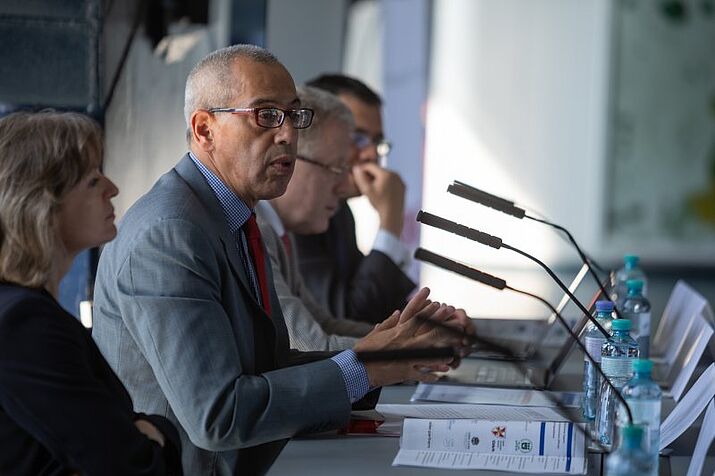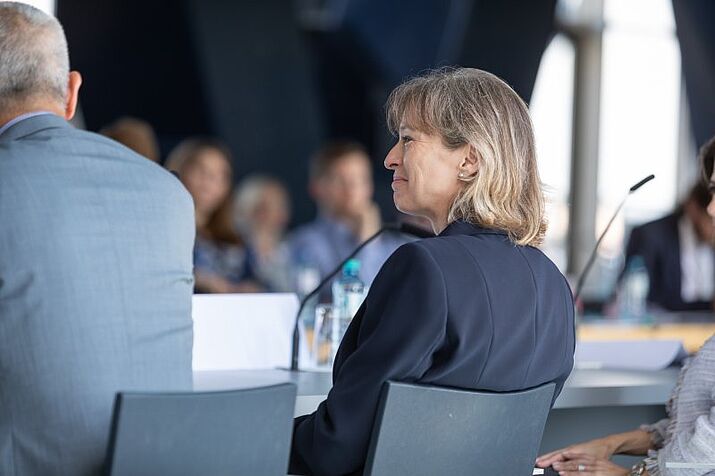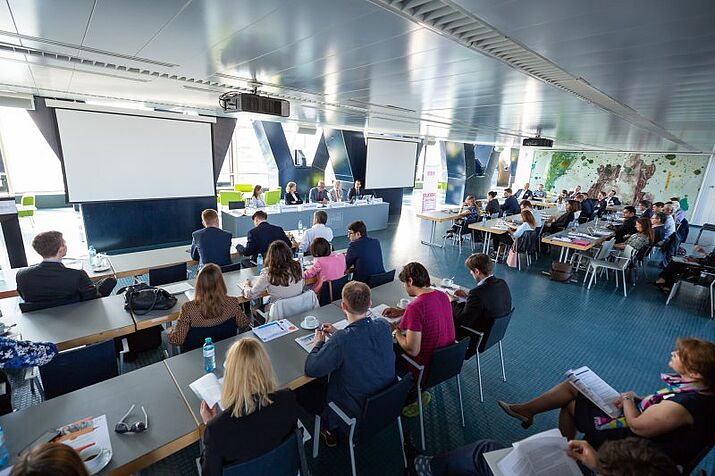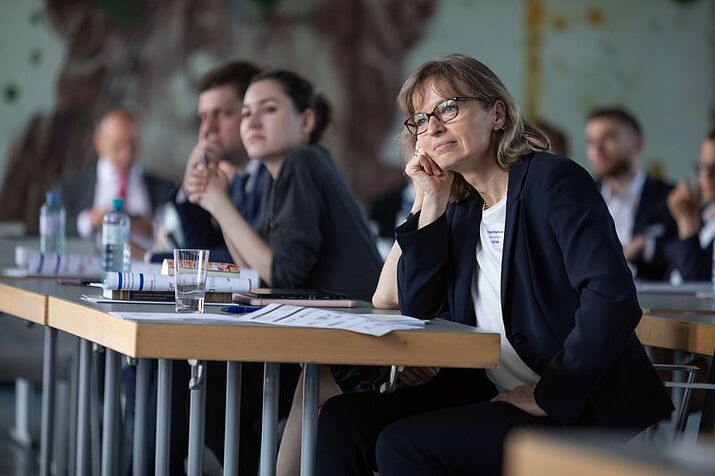Ninth Investment Arbitration Forum: "Lessons learnt in Latin America – relevant for Investment Arbitration in Europe? Valuation of Damages in Changing Economic and Political Circumstances
The Department of International Law and International Relations (Professor Irmgard Marboe), in cooperation with the Austrian Chamber of Commerce (ICC), the Instituto de Investigaciones Jurídicas of the Universidad Nacional Autónoma de México and Wöss & Partners organised the ninth "Investment Arbitration Forum" which took place on 26 May 2018. The "Investment Arbitration Forum" was founded in Mexico in 2008 and has been held annually since then, mostly in Mexico City, but also in Washington, DC. The event in the Vienna Juridicum was the first in Europe.
Under the title "Lessons Learned in Latin America - Relevant to Investment Arbitration in Europe? Valuation of Damages in Changing Economic and Political Circumstances" the programme was dedicated to the discussion about the extent to which experiences of investment disputes in Latin America could be relevant to Europe in the context of changing political and economic circumstances. A special focus was given to the calculation of compensation and damages. In his welcome speech, Ambassador Hermann Aschentrupp Toledo, Deputy Head of Mission of the Mexican Embassy in Austria, explained the background to Mexico's recent accession to the ICSID Convention. Corinne Montineri and Dr. Judith Knieper from UNCITRAL gave an overview of the reform of the ISDS in the light of the discussion of Working Group III. They addressed in particular recent developments in terms of transparency standards.
The first panel, moderated by Dr. Guillermo Estrada Adan (Instituto de Investigaciones Juridicas/UNAM), discussed selected cases of international investment disputes in Latin American countries. Diego Brian Gosis (GST LLP) dedicated his presentation to the emergency measures of Argentina and the resulting claims of foreign investors and their valuation. Michael Kotrly (Freshfields) spoke about the "Bolivarian revolution" of Hugo Chavez and its implications for assessing investors' claims against Venezuela, in particular as to whether a higher risk of expropriation was being considered in the calculation of the damages claims. Diego Cadena (Foley Hoag) discussed Ecuador's dispute with foreign investors in the oil industry. Finally, Dr. Herfried Wöss (Wöss & Partners) analysed the cases Burlington v. Ecuador and Murphy v. Ecuador, in which causality in particular played a major role in the damage calculation.
The second panel, moderated by Professor Nikos Lavranos (Wöss & Partners) and Smaranda Miron (Energy Community), dealt with the problem of changing economic and political circumstances and their impact on the damage calculation, which may be transferred from Latin America to other countries. Professor Irmgard Marboe (University of Vienna) devoted herself to the distinction between lawful and unlawful expropriation and came to the conclusion that, in the practice of arbitral tribunals, ultimately the payment of compensation was not the decisive criterion, but the requirement of due process. Dr. Alejandro Carballo Leyda (Energy Charter Secretariat) discussed ways to take into account changing economic conditions under the Energy Charter, for example, with respect to Art. 24 ECT (maintenance of public order). Adriana San Román (Wöss & Partners) compared the assessment of damages in international commercial arbitration with that of international investment arbitration on the basis of prominent gas and oil cases, such as Bridas v. Turkmenistan. Benard V. Preziosi (Curtis, Mallet-Prevost, Colt-Mosle) discussed the impact of contractual provisions on the calculation of damages in investment arbitration based on the case Mobil v. Venezuela.
Dr. Elisabeth Vanas-Metzler (VIAC) and Emmanuel Kaufman (Knoetzl) moderated the third panel about recent developments in investment arbitration in Europe and Latin America. Antolín Fernández Antuña from the Spanish Ministry of Justice presented an evaluation analysis of several renewable energy cases against Spain. Anne-Karin Grill (International Conflict Management) discussed the difference between expropriation compensation and damages for breaches of contract and argued for a different approach in the calculation. Professor Stefan Weber (Weber & Co) discussed the compensability of reliance damage in the case of bad business decisions. Professor Christoph Schreuer (zeiler.partners/Universität Wien) discussed the consequences of the withdrawal of three Latin American states (Bolivia, Ecuador and Venezuela) from the ICSID Convention.
On the last panel, moderated by Adriana San Roman (Wöss & Partners), finance and valuation experts discussed their methods of calculating damages in changing political and economic circumstances. Dr. Anton Garcia (Compass Lexecon) presented his quantification of damages in the case of renewable energy disputes. James Searby (FTI Consulting) emphasized the differences between damage assessment and business valuation. Tomas Haug (NERA) analysed the use of information in retrospect to quantify damage and compared the ex-ante and ex-post approaches. Finally, Thierry J. Senechal (Finance for Impact) explained some methods of determining the time value of money in the context of damages valuation.
The event was well attended with over 70 participants. The Kluwer Arbitration Blog published a detailed report written by Katharina Plavec (University of Vienna). Some presentations will be published in the Journal of Damages in International Arbitration.




